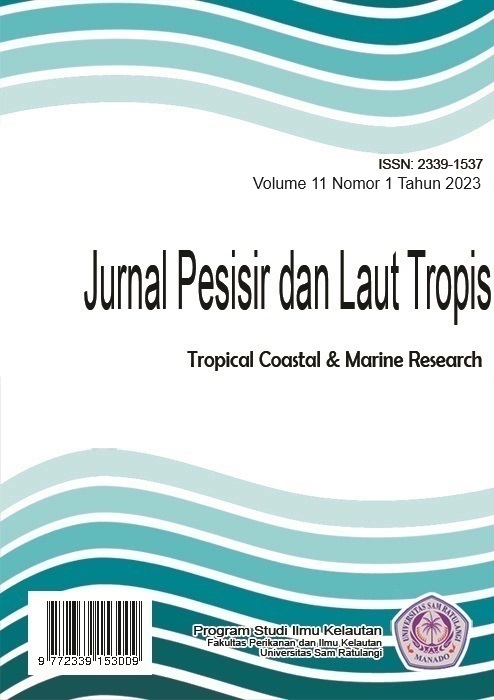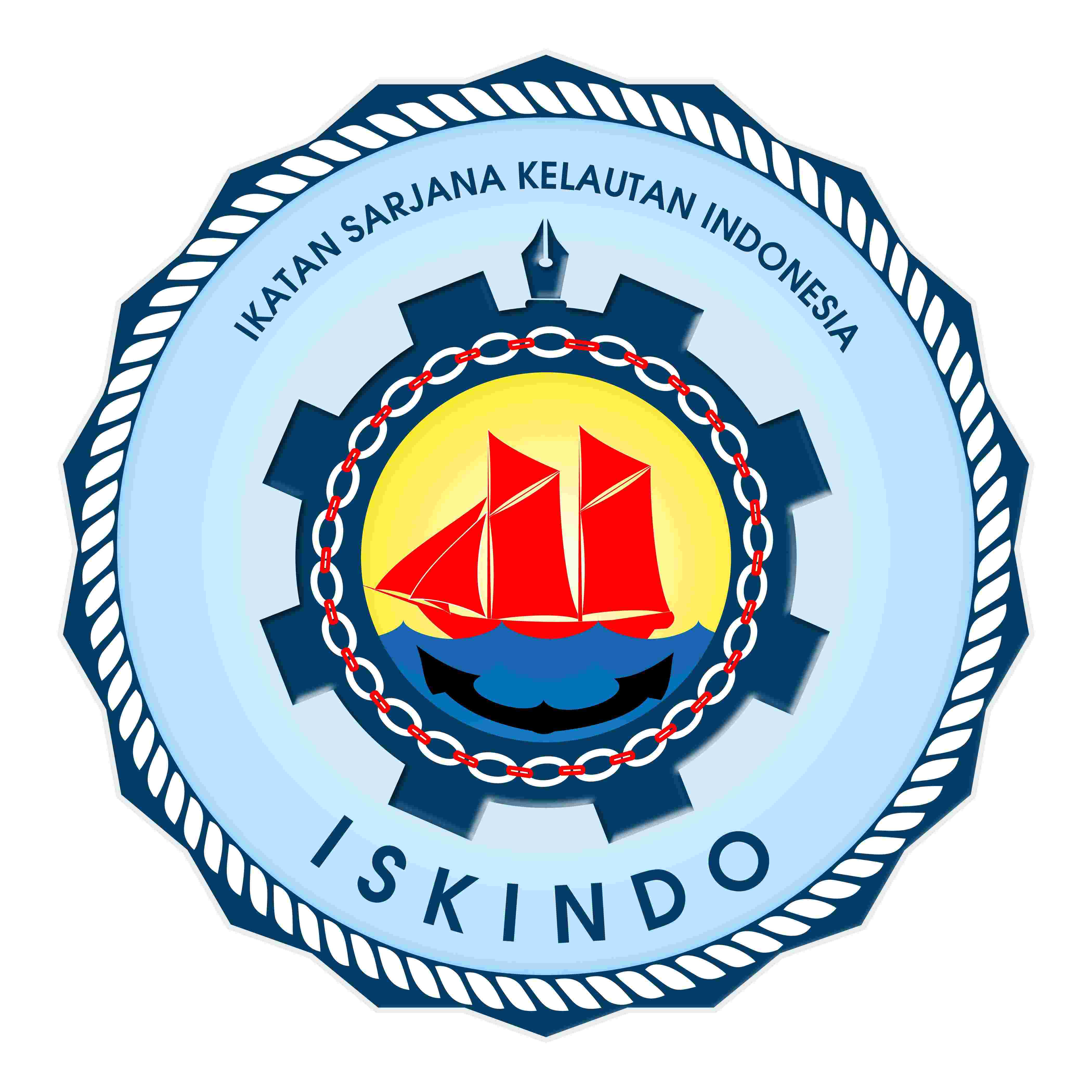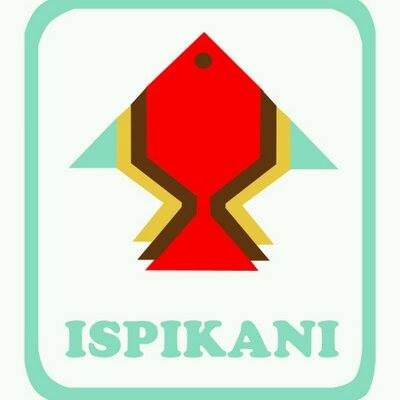KEANEKARAGAMAN SPONS DI KAWASAN PANTAI KINAMANG KECAMATAN MALALAYANG KOTA MANADO
DOI:
https://doi.org/10.35800/jplt.11.1.2023.53334Keywords:
Keanekaragaman; Spons; Pantai Kinamang; Kandungan BioaktifAbstract
Spons are primitive living settled animals that are filter feeder. These animals are commonly
found in tropical and sub-tropical waters, ranging from the intertidal zone to the subtidal. The aim of this
study is to know the diversity of species and the content of bioactive sponges. Sponge data collection:
ecological index, species composition and density of sponge as well as knowledge of the study of
bioactive sponge using the library study of the research carried out and using the scientific articles of
the last 10 years, from 2013 to 2023. The study used the transec belt method that has been modified.
From the use of the method, 17 Families were obtained, 48 individuals at a depth of 7 m and 118
individuals at 14 m. Based on the results of this study showed that the index of diversity obtained from
the analysis results belonged to the average in 7 m and 14 m. Distribution patterns obtained from data
analysis results obtain the distribution pattern at a depth of 7 m grouping 5 families, uniform 5 families
and random 1 family. At a depth of 14 m, the most spread pattern is the uniform spread of 10 families,
and the spread model groups 4 families. The index of diversity obtained from the results of data analysis
is high (stable). The composition of the species obtained from the results of the analysis showed the
highest species of the clionaidae family and the lowest sponge species composition is 7 m depth is 0%,
the lower species in 14m depths is 11.86%. The highest value of spongy density at a depth of 7 meters
is 2.44 ind/m² and the lowest is 0.15 ind/m², whereas at depths of 14 meters with the highest values are
3.16 ind/m² and lower is 0.08 ind/m² and a library study of the bioactive content received 27 articles
related to the family obtaining at the research site and in teluk manado.
Keywords: Diversity, Sponge, Kinamang Beach, Bioactive Content
ABSTRAK
Spons merupakan hewan primitif yang hidup menetap yang bersifat filter feeder (menyaring).
Hewan ini sangat umum dijumpai di perairan tropis dan sub tropis, sebarannya mulai dari zona intertidal
hingga zona subtidal. Tujuan dari penelitian ini yaitu mengetahui keanekaragaman jenis dan kandungan
bioaktif spons. Pengambilan data spons : indeks ekologi, komposisi jenis dan kepadatan spons serta
mengetahui kajian mengenai bioaktif spons dengan menggunakan studi pustaka dari penelitian yang
telah dilakukan dan menggunakan artikel ilmiah 10 tahun terakhir tahun 2013 sampai 2023. Penelitian
ini menggunakan metode belt transek yang telah dimodifikasi. Dari pengunaan metode tersebut
diperoleh 17 Famili, 48 individu pada kedalaman 7 m dan 118 individu pada kedalaman 14 m.
Berdasarkan hasil dari penelitian ini menunjukkan bahwa indeks keanekaragaman yang diperoleh dari
hasil analisis tergolong sedang pada kedalam 7 m dan 14 m. Pola Sebaran yang diperoleh dari hasil
analisis data didapatkan pola sebaran pada kedalaman 7 m pola sebaran mengelompok 5 famili, pola
sebaran seragam 5 famili,dan pola sebaran acak 1 famili. Sedangkan pada kedalaman 14 m pola
sebaran terbanyak yaitu, pola sebaran seragam 10 famili, dan pola sebaran mengelompok 4 famili.
Indeks keseragaman yang diperoleh dari hasil analisis data yaitu tergolong tinggi (stabil). Komposisi
jenis yang diperoleh dari hasil analisis menunjukkan jenis spons tertinggi yaitu dari famili clionaidae dan
komposisi jenis spons terendah kedalaman 7 m yaitu 0%, jenis spons terendah pada kedalaman 14 m
yaitu 11,86 %. Nilai kepadatan spons tertinggi pada kedalaman 7 m yaitu 2,44 ind/m² dan terendah
yaitu 0,15 ind/m², sedangkan pada kedalaman 14 meter dengan nilai tertinggi yaitu 3,16 ind/m² dan
terendah yaitu 0,08 ind/m² dan studi pustaka mengenai kandungan bioaktif yang didapatkan 27 artikel
yang berkaitan dengan famili yang didapatkan di lokasi penelitian dan di teluk manado.
Kata Kunci: Keanekaragaman, Spons, Pantai Kinamang, Kandungan Bioaktif
References
Ahmed H. Afif, A. H.-D. (2016). Carteritins A and B, cyclic heptapeptides from the marine sponge Stylissa carteri. Tetrahedron, 1285-1288.
Ahmed H. Afif, I. K.-D. (2017). Sulawesins A−C, Furanosesterterpene Tetronic Acids That Inhibit US/P7, from a Psammocinia sp. Marine Sponge. Journal of Natural Products, 2045- 2050.
Angeline E. C. Ngantung, D. A. (2016). Uji Aktivitas Antibakteri dari Spons Dictyonella funicularis dan Phyllospongia lamellosa yang diambil pada Perairan Bunaken. Jurnal Pesisir dan Laut Tropis, 10- 16.
Brower, J. E., Zar, J. H., & Ende, C. (1989). Field and Laboratory Method for General Ecology Fourth Edition. Boston, USA: McGrwa-Hill Publication.
Colin, P. L., & Arneson, C. (1995). Tropical Pacific Invertebrates. California, Beverly Hills: Coral Reef Press.
Colin, P. L., & Arneson, C. (1995). Tropical Pacific invertebrates: A Field Guide to Thr Marine Invertebrates Occurring on Tropical Pacific Coral Reefs, Seagrass Beds and Mangroves. US: Coral Reef Press.
Defny S. Wewengkang, D. A. (2014). Karakterisasi dan Bioaktif Antibakteri Senyawa Spons Haliclona sp. dari Teluk Manado. Jurnal LPPM Bidang Sains dan Teknologi, 71-85.
Delfly B. Abdjul, H. Y.-i. (2017). An anti mycobacterial bisfunctionalized sphingolipid and new bromopyrrole alkaloid from the Indonesian marine sponge Agelas sp. 2-7.
Edgar Nowin, V. W. (2018). Penampisan (skrining) Aktivitas Antibakteri beberapa Ekstraks Spons dari Teluk Manado. Jurnal Pesisir dan Laut Tropis, 52-60.
Fajarningsih, N. D., Januar, H. I., Nursid, M., & Wikanta, T. (2006). Potensi Antitumor Ekstrak Spons Crella papilata asal Taman Nasional Laut Kepulauan Seribu. Jurnal Pasca Panen dan Bioteknologi Kelautan dan Perikanan, 35-42.
Fajrina, A., Bakhtra, D. D., & Irenda, Y. (2018). Uji Aktivitas Antibakteri Ekstrak Etil Asetat Spons Aplysina aerophoba pada Helicobacter pylori dan Shigella dysenteriae. Jurnal Farmasi Higea, 134-142.
Fitri, H. (2016). Tingkat Keanekaragaman Hewan Invertebrata Filum Porifera di Gili Nanggu Desa Tawun Sekotong Lombok Barat Tahun 2016. IAIN . Mataram: Jurusan Pendidikan IPA Biologi.
Gabrielle, M., Sumilat, D. A., Warouw, V., Mangindaan, R. E., Sinjal, C. A., & Longdong, S. N. (2019). Uji Antibakteri Ekstrak dan Fraksi Spons terhadap Escherichia coli dan Staphylococcus aureus serta Potensinya terhadap Aktivitas Anti UV. Jurnal Pesisir dan Laut Tropis, 196-207.
Haedar, Sadarun, B., & Palupi, R. D. (2016). Potensi Keanekaragaman Jenis dan Sebaran Spons di Perairan Pulau Saponda Laut Kabupaten Konawe. Sapa Laut, 1(1), 1-9.
Hendra, Yudistira, A., & Sumantri, S. (2020). Evaluasi Aktivitas Antioksidan Ekstrak Etanol Spons Aplysina sp di Pesisir Pantai Lembeh Kota Bitung. Pharmacon, 458-463.
Insafitri. (2010). Keanekaragaman, Keseragaman, dan Dominasi Bivalvia di Area Buangan Lumpur Lapindo Muara Sungai Porong . Jurnal Kelautan, 54-59.
Liem, J. W., Bara, R. A., Sumilat, D. A., Warouw, V., Losung, F., & Wantasen, A. (2019). Bioprospeksi Antibakteri Beberapa Jenis Spons dari Perairan Pangalisang Bunaken. Jurnal Pesisir dan Laut Tropis, 7-12.
Luissandy, D. A. (2017). Bioaktivitas ANTIBAKTERI Fraksi ODS Spons Agelas sp. dari Perairan Pulau Bunaken. Jurnal Pesisir dan Laut Tropis, 22-30.
Magie M. Kapojos, D. B. (2018). Callyspongiamides A and B, Sterol O-Acyltransferase Inhibitors, from the Indonesian Marine Sponge Callyspongia sp. Bioorganic & Medicinal Chemistry , 1-13.
Manumpil, A. H., Wewengkang, D. S., & Yudistira, A. (2019). Evaluasi Aktivitas Antioksidan Ekstrak Etanol Spons Aplysina sp. dari Perairan Selat Lembeh Kota Bitung. Pharmacon, 127-133.
Maradou, R. B., Losung, F., Mangindaan, R. E., Lintang, R. A., Pelle, W. E., & Sambali, H. (2019). Uji Aktivitas Antibakteri Beberapa Spons dari Perairan Salibabu Kepulauan Talaud. Jurnal Pesisir dan Laut Tropis, 7(3), 234-241.
Masaki Gushiken, I. K. (2015). Manadodioxans A2E: polyketide endoperoxides from the marine sponge Plakortis bergquistae. The Japanese Society of Pharmacognosy and Springer Japan, 595-600.
Michael, P. (1994). Metode Ekologi untuk Penelitian Ladang Laboratorium . Jakarta: Universitas Indonesia Press.
Michitaka Yamaguchi, M. M. (2013). Spongiacidin C, a pyrrole alkaloid from the marine sponge Stylissa massa, functions as a USP7 inhibitor. Bioorganic & Medicinal Chemistry Letters, 3884-3886.
Nani Ingrid J. Undap, D. A. (2017). Antibacterial substances of sponges, Agelas tubulata and Phyllospongia sp., from Manado Bay, against the growth of several bacterial strains. Journal of Aquatic Science & Management, 23-28.
Natsuki Tanokashira, S. K. (2016). Petroquinones: Trimeric and dimeric xestoquinone derivatives isolated from the marine sponge Petrosia alfiani. Tetrahedron, 1-10.
Nazir, M. (1988). Metode Penelitian. Jakarta: Ghalia Indonesia. Odum, E. P. (1993). General Ecology Indonesian Version: Dasar- dasar Ekologi. Yogyakarta: Gadjah Mada Uviversity Press.
Pasodung, A. P., Losung, F., Angkouw, E. D., Lintang, R., Mantiri, D. M., & Sumilat, D. A. (2018). Uji Aktivitas Antibakteri Spons Plakortis sp. yang Dikoleksi dari Perairan Bunaken. Jurnal Pesisir dan Laut Tropis, 44-51.
Santhanam, R., Ramesh, S., & Sunilson, A. J. (2019). Biology and Ecology of Pharmaceutical Marine Sponges. Boca Raton: CRC Press.
Sarwadan, H. (2020). Keanekaragaman Jenis dan Sebaran Sponge di Perairan Negeri Morella Kecamatan Leihitu Kabupaten Maluku Tengah. IAIN. Ambon: Jurusan Pendidikan Biologi.
Subagio, I. B., & Aunurohim. (2013). Struktur Komunitas Spons Laut (Porifera) di Pantai Pasir Putih, Situbondo . Jurnal Sains dan Seni Pomits, 2(2), 159- 165.
Sukmaningrum, K., Yudistira, A., & Antasionasti, I. (2021). Uji Aktivitas Antioksidan Ekstrak Etanol Spons (Stylissa sp) yang Dikoleksi dari Teluk Manado. Pharmacon, 756-761.
Sumilat, D. A. (2017). Aktivitas Spons Laut Lamellodysidae herbacea dari Perairan Malalayang, Manado. Jurnal LPPM Bidang Sains dan Teknologi, 4(1), 1-7.
Sumilat, D. A. (2019). Skrining Aktivitas Antibakteri Beberapa Jenis Spons Terhadap Pertumbuhan Strain Bakteri Staphylococcus aureus, Escherichia coli, Staphylococcus saprophyticus, dan Pseudomonas aeruginosa. Jurnal Ilmiah Platax, 455-461.
Sumilat, D. A. (2021). Screening antibacterial activity ODS fractions of marine sponges against non-pathogenic bacteria tuberculosis Mycobacterium smegmatis. Aquatic Science & Management, 26-31.
Syu-ichi kanno, S. Y. (2013). Papuamine causes autophagy following the reduction of cell survival through mitochondrial damage and JNK activation in MCF-7 human breast cancer cells. Internasional Journal of Oncology, 1413-1419.
Tongkali, F., Yudistira, A., & Suoth, E. (2022). Uji Aktivitas Antioksidan Ekstrak Etanol Spons Aaptos aaptos dari Teluk Manado Sulawesi Utara. Pharmacon, 1279-1284.
Watupongoh, C. C., Wewengkang, D. S., & Rotinsulu, H. (2019). Aktivitas Antimikroba dari Ekstrak dan Fraksi Organisme Laut Spons Stylissa carteri yang Dikoleksi dari Perairan Selat Lembeh Kota Bitung. Pharmacon, 662-670.
Wilmar Maarisit, D. B. (2017). Anti mycobacterial alkaloids, cyclic 3- alkyl pyridinium dimers, from the Indonesian marine sponge Haliclona sp. 3502-2506.
Yanti, H., Palupi, R. D., & Rahmadani. (2020). Keanekaragaman dan Kepadatan Spons di Perairan Lalowaru Sulawesi Tenggara. Sapa Laut, 5(1), 61-67.
Downloads
Published
How to Cite
Issue
Section
License

This work is licensed under a Creative Commons Attribution-NonCommercial 4.0 International License.















